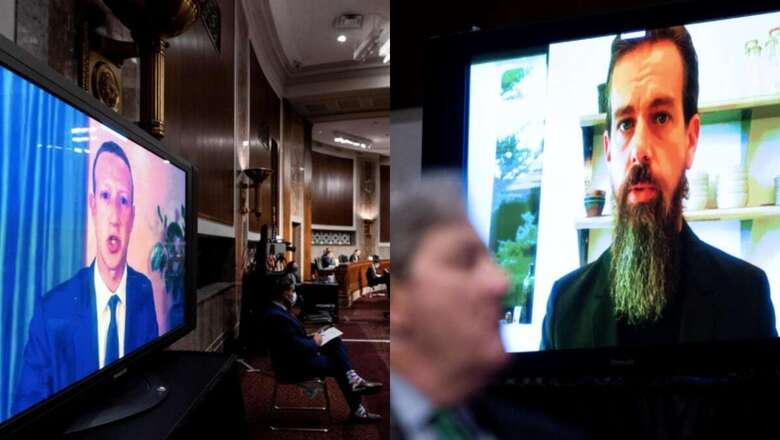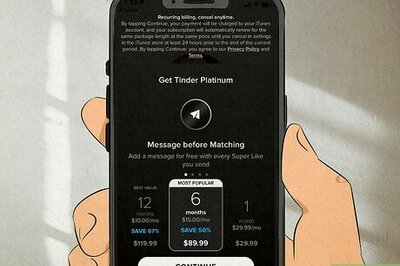
views
Last night, on Tuesday November 17, Facebook and Twitter’s chief executive officers, Mark Zuckerberg and Jack Dorsey, returned to face a new round of grilling at the United States Senate. Zuckerberg, now a more seasoned CEO at congressional hearings than Dorsey, was making a return to the hot seat after the recent hearing of the four Big Tech CEOs – featuring Amazon’s Jeff Bezos, Apple’s Tim Cook and Google’s Sundar Pichai as well. After answering on a wider range of issues last time, Zuckerberg and Dorsey responded last night about allegations of political bias in their actions (largely thrown at them by Republican senators). They also faced ominous threats that suggested legislators should reform, or even take away entirely, Section 230 – the clause in USA’s law that protects these social media companies as being “intermediaries”, and hence not being held directly guilty of posts made by users on their platforms.
The hearing in question was seemingly centred around an article on New York Post, which may have impacted the candidature of President-elect Joe Biden ahead of the tumultuous 2020 US elections. While Republicans alleged that Dorsey and Zuckerberg’s companies had a clear case of anti-conservative approach to how content on their platforms is moderated, other senators brought to light how these social media companies still have hardly any legal accountability for their actions – despite the massive impact they have in the real world today. The answers, from both the CEOs, were largely generic and similar to what they have mentioned already. Dorsey, for instance, admitted by reiterating Twitter’s statement on how they may not have had a “great” reaction by banning the post – and admitted that they learnt on the go how censoring an article completely, in the name of checking facts, appeared like.
Zuckerberg, meanwhile, also admitted in a question by Republican Ben Sasse that a chunk of Facebook’s employees may have left-leaning political ideologies, and that the personal political opinions of the company’s moderators may have an effect on how Facebook approaches content that is borderline for either political mentalities – thereby inducing bias. The questions have largely remained consistent, and yet again, questions around Section 230 – the law that protects social media companies from facing legal actions as a result of users’ posts on the platforms – were raised. Unsurprisingly, a majority of Republican senators at the hearing clearly stated that they believe that the Section requires, at the least, an overhaul in terms of what regulations it offers.
However, what the hearing failed to address was that by removing Section 230, social media companies may be forced to censor all content even more aggressively in order to protect themselves from legal implications. This would essentially not benefit either political parties, and in the global context, be detrimental towards the democratised platforms that social media services such as Facebook and Twitter are in the present day. What does need to be established is a more uniform and sound regulatory policy in terms of labelling posts, accounts, bots, accounting infringements and other related fields.
As Avinash Chandra, associate director at the Centre for Civil Society in India told News18 in a previous conversation, the key lies in establishing parity in how social media platforms approach the issue of regulation, while keeping the ethos the same for all political leanings. “Facebook’s actions differ from person to person or account to account, when it comes to moderation. I have met people complaining against harsh action taken by Facebook – by blocking accounts or pages for a period of time with allegations of inappropriate content. I have also seen posts go unnoticed, while the content of the post might fall in the same category. This has to be brought to level terms – if someone makes a hate speech during a live telecast on national television, what would be the appropriate action? Would the law oppose the person who made the statements, or the channel that aired it?”, Chandra underlined.
As always, last night’s US senate hearing of Zuckerberg and Dorsey ended with the legislators stating that the CEOs may find themselves back in the hot seats sooner than later. Going forward, it would remain to be seen how far these hearings contribute to overhauling the present technology policy and legislative postulates, and whether any of these conversations can actually contribute to maturing the level of technology laws in USA and across the world.
Read all the Latest News, Breaking News and Coronavirus News here

















Comments
0 comment